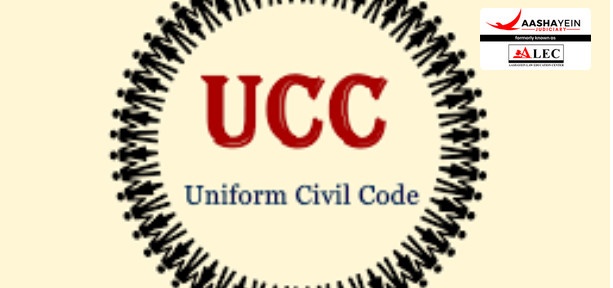The Uniform Civil Code (UCC) remains one of India’s most debated legal issues, seeking to replace the existing personal laws governing marriage, divorce, inheritance, and adoption with a single, secular law applicable to all citizens, irrespective of religion. The demand for a UCC stems from the desire to foster equality, gender justice, and national integration, but its implementation presents significant legal, social, and cultural challenges.
What is the Uniform Civil Code?
A Uniform Civil Code is envisioned as a set of civil laws that apply uniformly across India, regardless of an individual’s religion. While Article 44 of the Indian Constitution (Directive Principles of State Policy) urges the state to secure a UCC, its enforcement remains non-mandatory. The debate revolves around balancing individual religious freedoms and cultural diversity with the goal of national integration and gender equality.
Constitutional History and Legal Provisions
The Indian Constitution places the UCC under Directive Principles of State Policy (Article 44), urging the state to aim for a uniform civil law for all citizens. However, these principles are not enforceable by courts. Article 25 guarantees freedom of religion, which is often cited by those opposing UCC, as personal laws are integral to religious practices.
Historically, the Constituent Assembly debated the issue intensely, with figures like Dr. B.R. Ambedkar and K.M. Munshi advocating for a UCC for national unity. However, religious leaders raised concerns about the potential infringement on religious freedoms, leading to its placement in the non-justiciable section of the Constitution.
Landmark Judgments and Case Laws
Several landmark judgments have shaped the discourse around UCC:
- Shah Bano Case (1985): The Supreme Court ruled that a Muslim woman was entitled to maintenance under Section 125 of the CrPC, regardless of her religion. This ruling highlighted the need for legal uniformity and led to a debate on whether personal laws should be reformed to ensure gender justice.
- Sarla Mudgal Case (1995): The Supreme Court called for a Uniform Civil Code to address discrepancies in marriage and divorce laws, particularly among the Hindu community. The Court emphasized the necessity of a common legal framework to uphold secularism and equality.
- Shayara Bano Case (2017): The Supreme Court struck down the practice of triple talaq, bringing the UCC debate back into the limelight. While the ruling focused on gender justice, it also emphasized the broader need for legal uniformity in personal laws.
Arguments in Favor of UCC
- Equality Before the Law (Article 14): A UCC would ensure gender-neutral laws, treating all citizens equally before the law, regardless of their religion. It would eliminate discriminatory practices in personal laws, such as polygamy, triple talaq, and unequal inheritance rights.
- Gender Justice: UCC could promote gender equality by reforming laws that often discriminate against women. For example, the implementation of UCC in Uttarakhand standardized the legal marriage age to 21, providing a model for gender justice.
- Simplifying the Legal System: A common legal code would streamline personal law disputes, reduce judicial delays, and simplify legal processes, making the system more accessible and efficient.
- National Integration: A UCC could reinforce national integration by promoting a common identity over religious affiliations. The Indian Penal Code is a successful example of a law that applies uniformly across all communities.
- Global Alignment: Many nations with diverse populations, such as Turkey and France, have adopted secular civil codes. A UCC in India would align the country with global human rights standards, improving its Global Gender Gap Index ranking.
Arguments Against UCC
- Religious Freedom (Article 25): Critics argue that UCC would infringe upon religious freedom by interfering with personal laws that form an essential part of religious practices. Religious communities may view the imposition of a uniform code as a violation of their constitutional rights.
- Cultural Diversity: India’s pluralistic society is marked by cultural and religious diversity. Critics assert that a UCC could undermine the pluralistic fabric of the nation, eroding the distinct practices of communities, such as the matrilineal inheritance system in Meghalaya.
- Minority Rights: There is concern that a UCC may disproportionately favor the majority community and marginalize minority groups. For instance, the implementation of UCC in Uttarakhand faced opposition from minorities who felt their customs were not sufficiently considered.
- Practical Challenges: Given the vast diversity of India, critics argue that creating a UCC that satisfies all communities is impractical. For example, the Hindu Succession Act (Kerala Amendment, 2015) shows that regional variations in personal laws already exist, even within Hindu communities.
- Federalism Concerns: Personal laws fall under the Concurrent List of the Constitution, meaning both the Centre and the States can legislate on these matters. A centrally imposed UCC could interfere with state autonomy, raising concerns about federalism.
Conclusion
While the Uniform Civil Code holds the potential to unify India’s diverse legal landscape and promote gender equality, its implementation must be carefully calibrated to respect religious freedoms and cultural diversity. A balanced approach, rooted in dialogue, safeguards, and evidence-based reforms, is essential for achieving a fair and inclusive legal system. The UCC should not be a tool of uniformity at the cost of diversity, but a bridge that ensures equality while respecting India’s pluralism.

